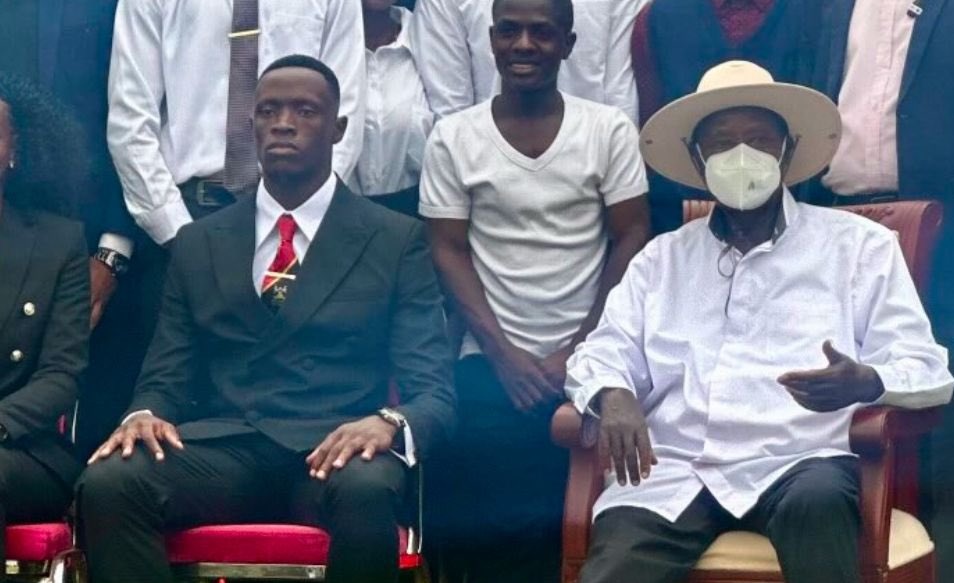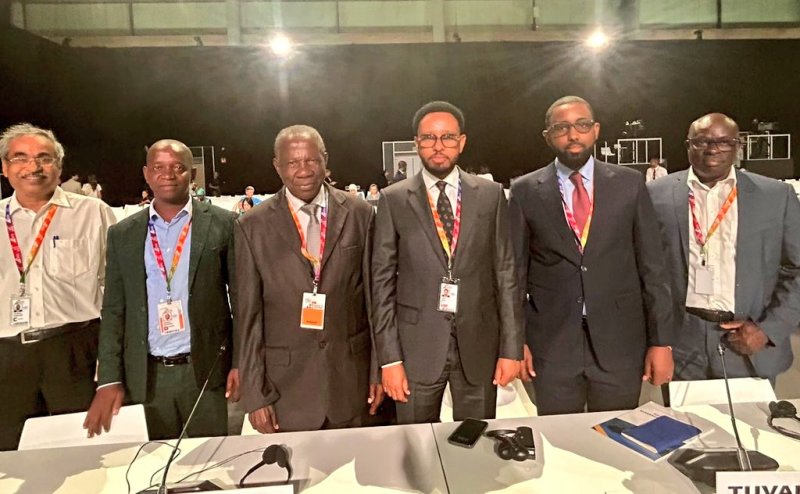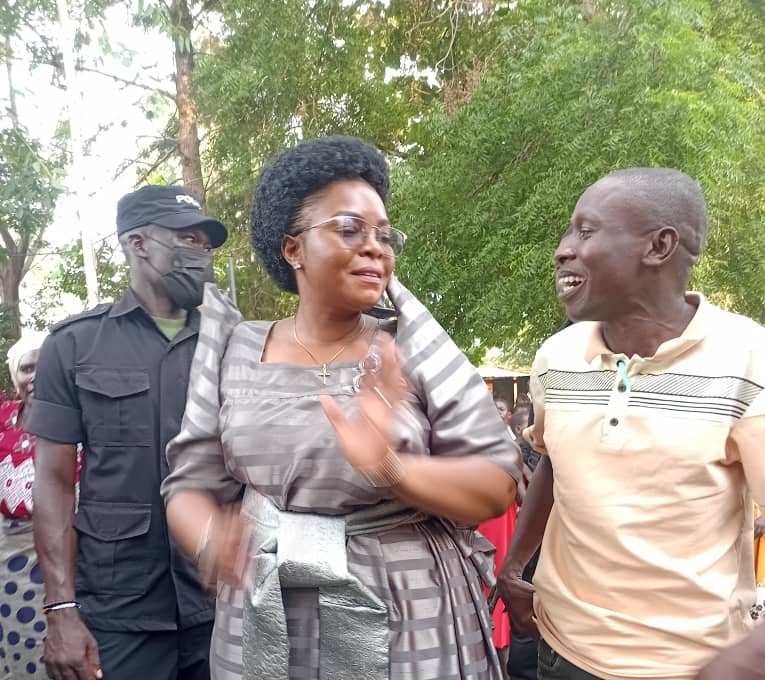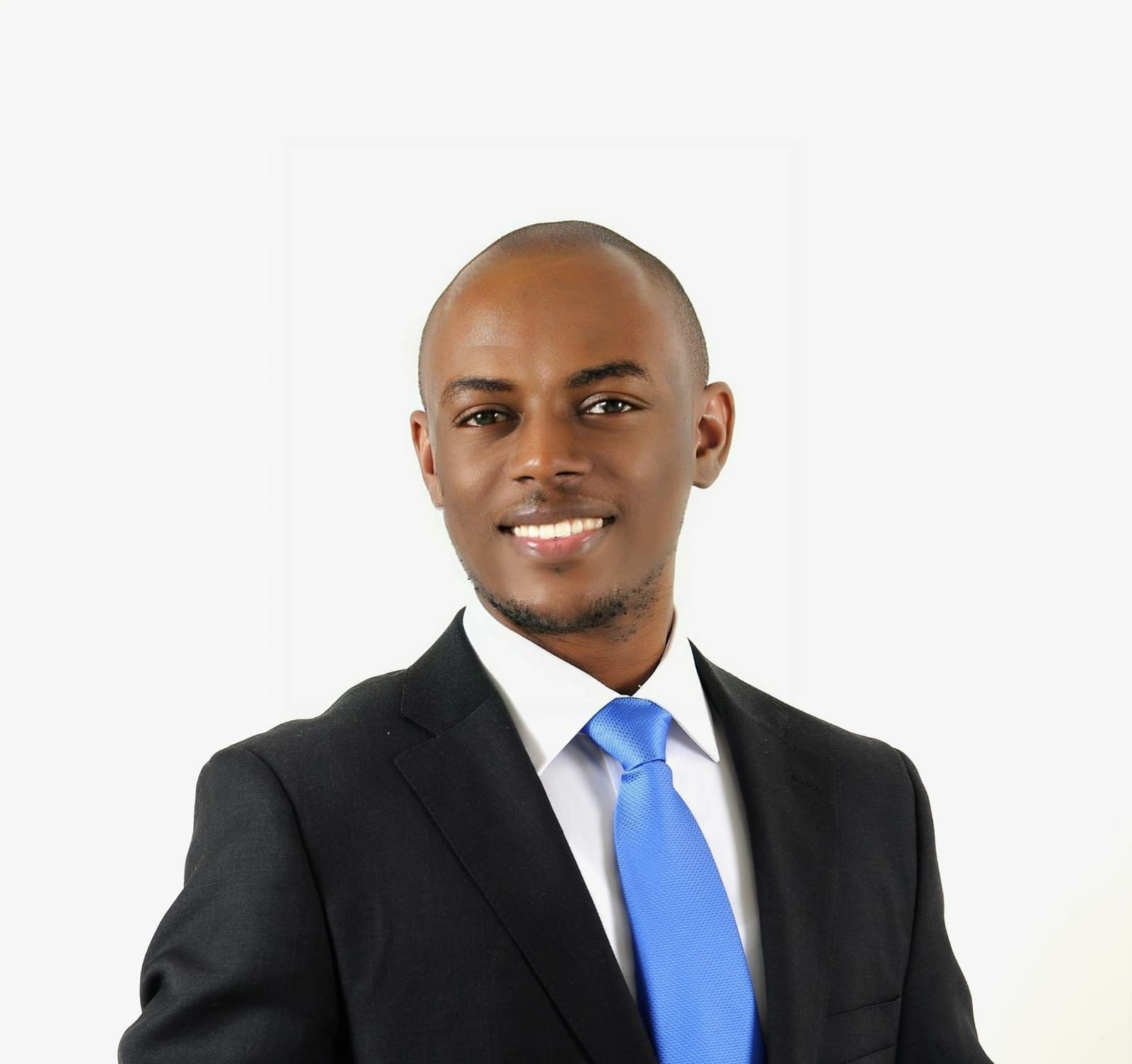NUP’s Nyanzi scolds son over photo moment with Museveni
A photo moment between Makerere University Guild President, Churchill Ssentamu, and President Yoweri Museveni was taken shortly after the launch of Makerere’s Research and Innovations Week.

In Uganda, where politics bleeds into family dinners and ideology often trumps intimacy, a single photo has sparked a storm—not just on social media, but in one of the country’s most prominent opposition households.
A photo moment between Makerere University Guild President, Churchill Ssentamu, and President Yoweri Museveni was taken shortly after the launch of Makerere’s Research and Innovations Week.
It was meant to be a ceremonial wrap-up to a prestigious academic event. But for Fred Nyanzi Ssentamu, chief mobilizer of the National Unity Platform (NUP) and elder brother to Bobi Wine, it was a bitter sight.
“He Almost Took My Life—And Your Uncle’s”
In a video that’s making the rounds online, a visibly emotional Nyanzi condemned his son, the Makerere University Guild President, for appearing alongside President Museveni.
“That man doesn’t wish you well,” he said. “He almost took my life—and your uncle’s. This is not a simple photo. It’s a symbol. And it sends the wrong message.”
He went as far as to advise his son to resign from his position as Guild President and publicly apologize to Ugandans. “You’re stepping into something much bigger than you realize,” Nyanzi warned.
VIDEO: https://x.com/DrMorgans01/status/1909877397526396932?t=PjgRN4peC_Z3Fc-sWNIBdg&s=19
When Family Legacy Meets Public Duty
The moment has sparked national conversation—not just about family loyalty but the tightrope walk that young Ugandan leaders must navigate in a highly polarized political environment.
Dr. Sarah Mbabazi, a political governance analyst and lecturer, believes the clash was inevitable. “Youth leaders, especially those connected to opposition heavyweights, are caught between political legacy and institutional responsibility,” she said.
“The son, as guild president, has a duty to represent his institution—even in the presence of someone his family opposes. It’s a clash of roles, not necessarily of values.”
Uganda’s population is predominantly youthful, and young people are taking up more space in governance, student leadership, activism, and civil service. But with that space comes heavy scrutiny.
Sandra Nambasa, a youth rights activist, weighed in, “We demand young people to lead yet crucify them when they appear neutral or diplomatic. That photo wasn’t an endorsement. It was a photo-op at a university event. Let’s not weaponize leadership moments.”
Others see it differently. Geoffrey Katongole, a staunch NUP supporter from Kawempe, said, “The photo hurt. We’ve sacrificed for this struggle. That boy should have known better. If he didn’t, then maybe he’s not ready to lead.”
And from the student community, Tracy Aine, a fourth-year law student at Makerere, told us, “His father may be right emotionally, but we must draw the line between student politics and national opposition. It’s okay to disagree, but we should allow leaders space to act in context.”
In an era where a single image can define perception, the Makerere Guild President’s photo with Museveni has become more than just a snapshot—it’s a case study in Uganda’s generational political tug-of-war.
As young leaders step into the fray, they’ll have to navigate both the expectations of their elders and the realities of institutional diplomacy. Sometimes, that may mean standing firm. Other times, it may mean standing in a photo.
And in Uganda’s political theatre, even a photo moment can echo louder than a speech.







